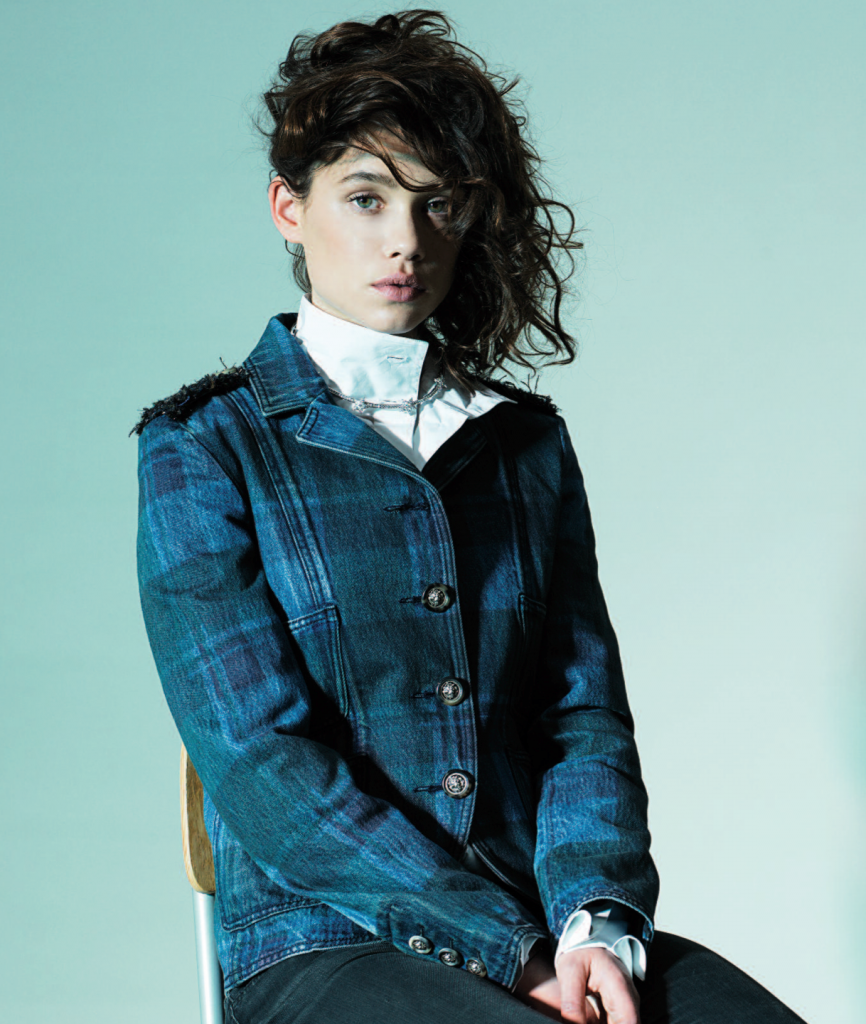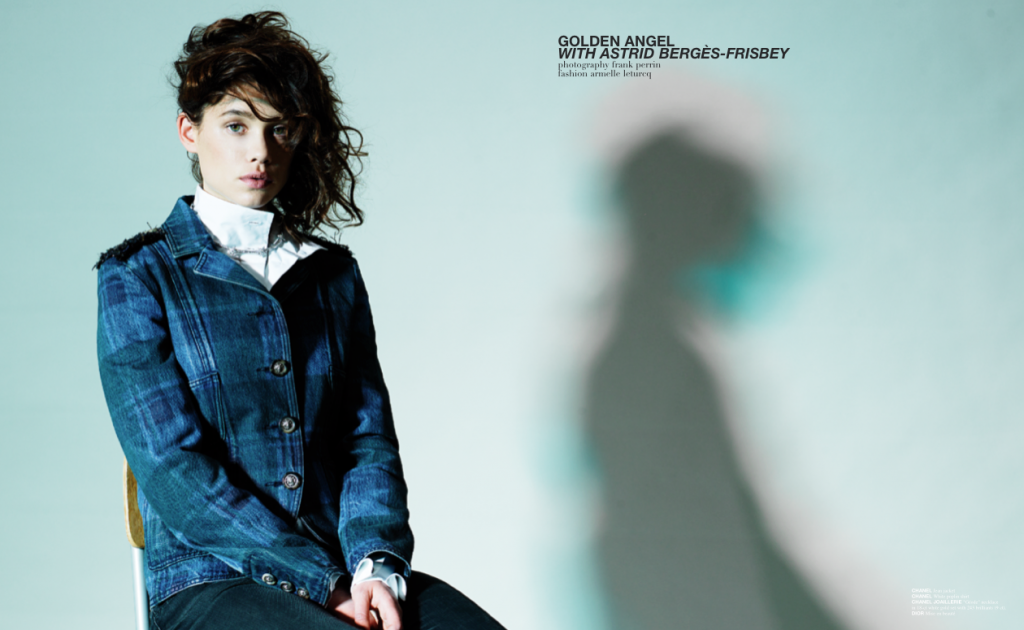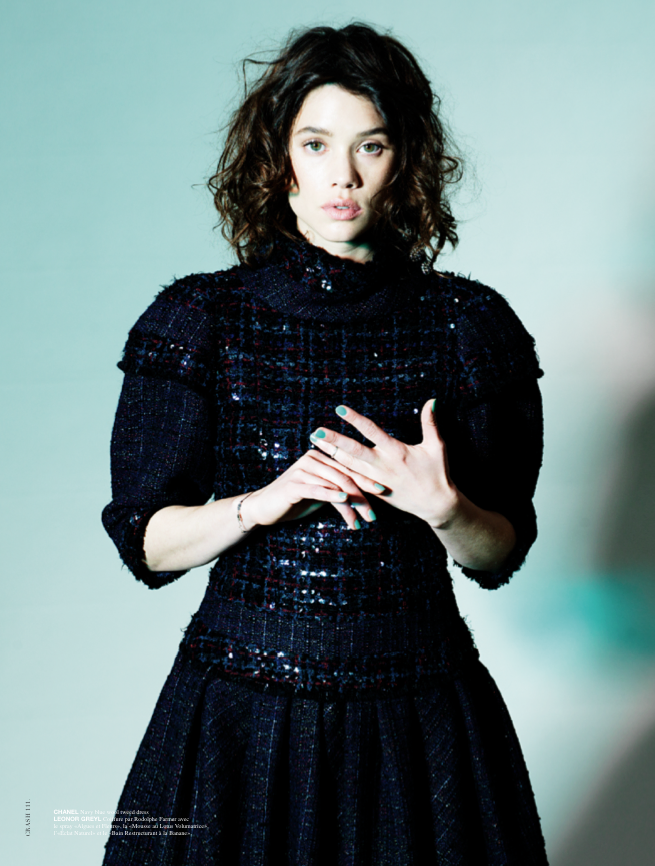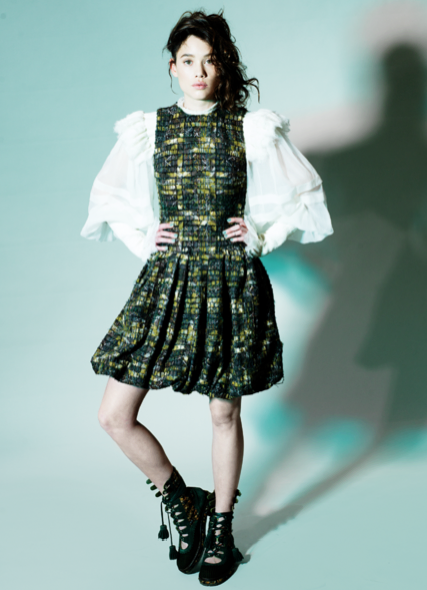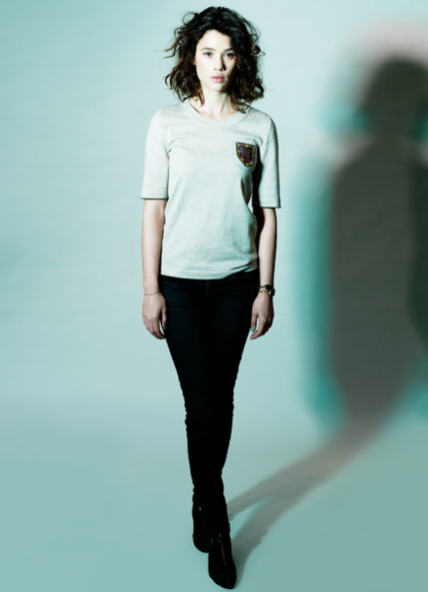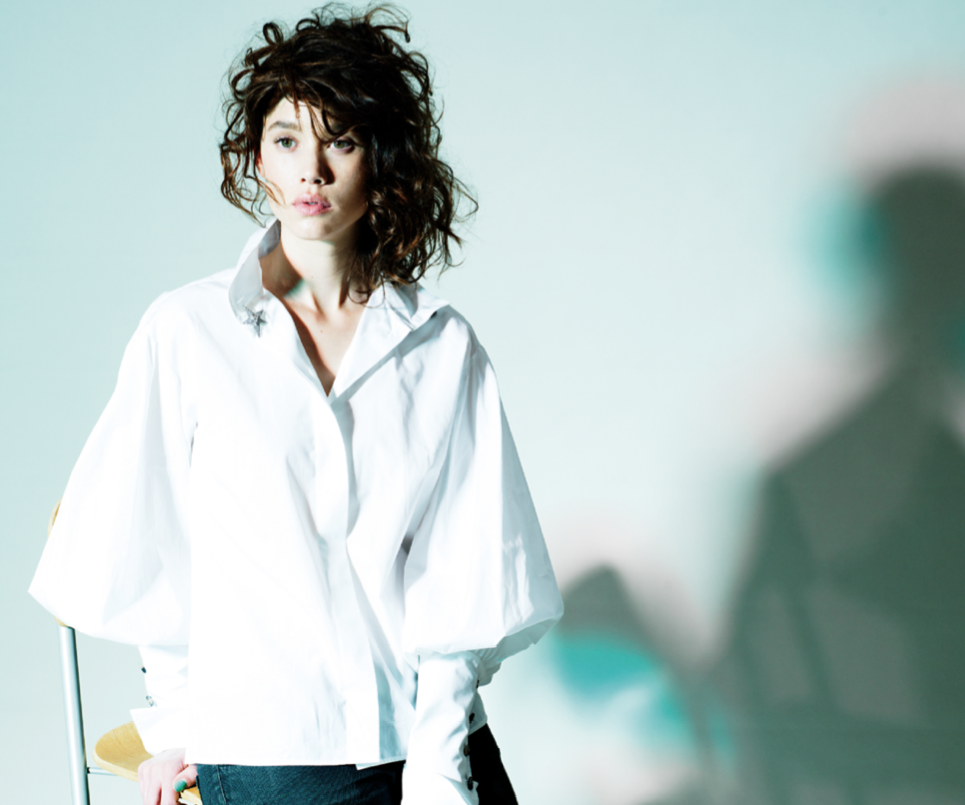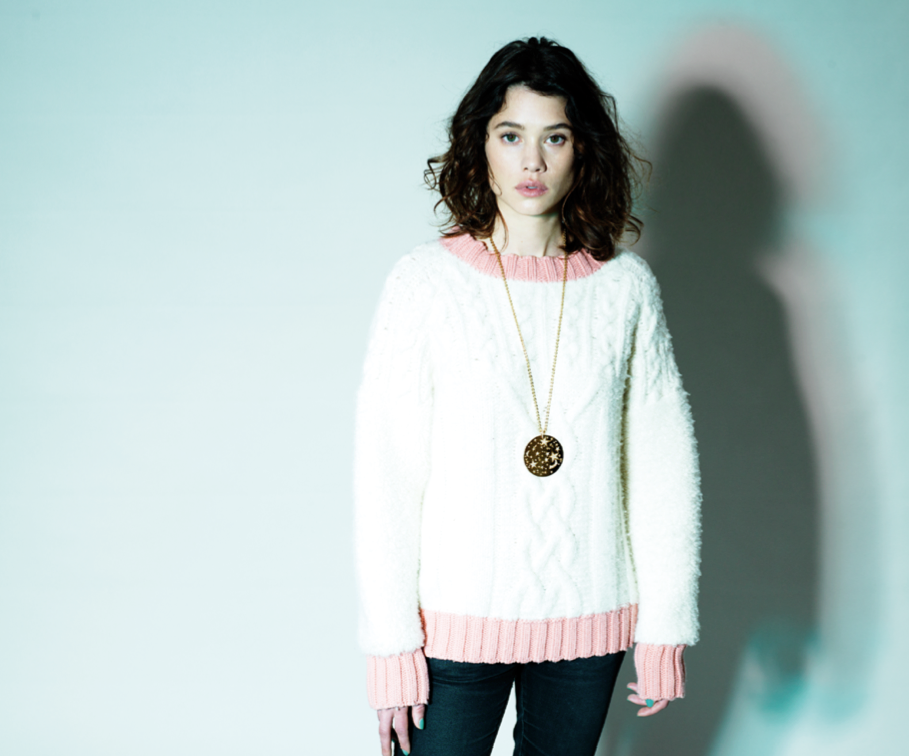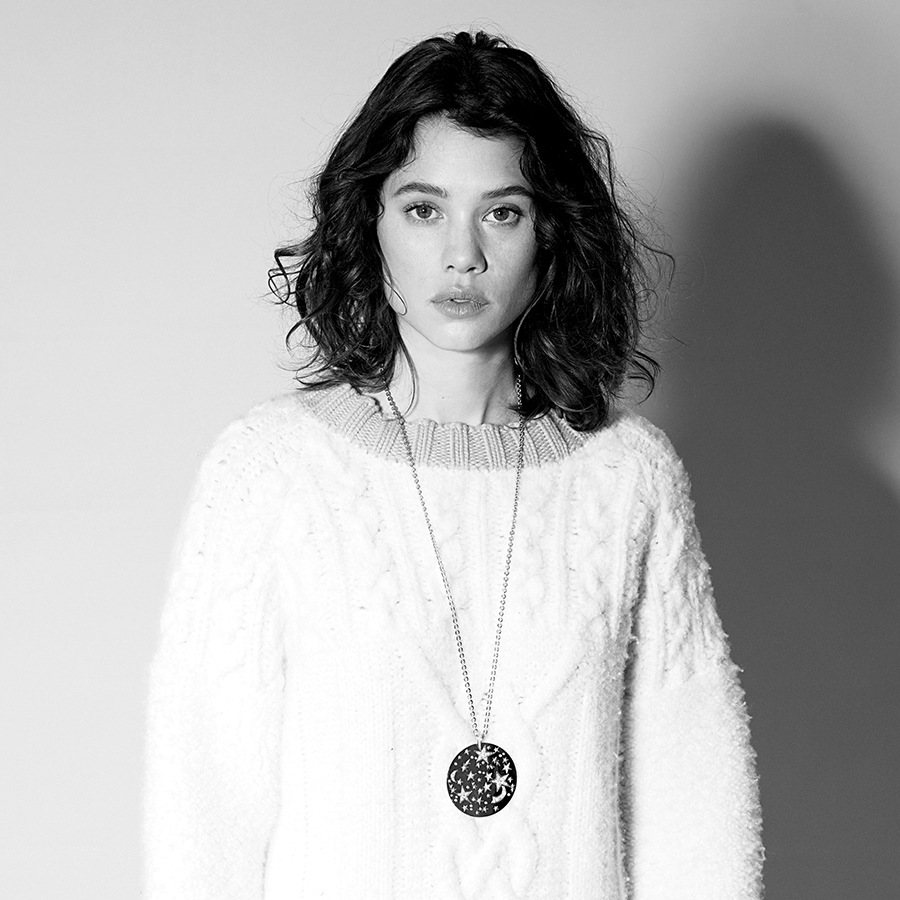
ASTRID BERGES FRISBEY CRASH 64
By Crash redaction
FIRST DISCOVERED IN “PIRATES OF THE CARIBBEAN 3”, YOUNG FRENCH ACTRESS ASTRID BERGES FRISBEY HAS PUT TOGETHER A UNIQUE CAREER THAT RECENTLY LED TO “JULIETTE”, A FILM IN THE SPIRIT OF ERIC ROHMER BY YOUNG DIRECTOR PIERRE GODEAU.
Have you done anything else in Hollywood since “Pirates of the Caribbean”?
No, and I even have an agent there! But I still need and want to learn more, and I feel like I have more to offer in French. Working in English was really hard for me since I didn’t speak the language as well as I would have liked. Of course I’m not against the idea of working there, but I don’t want to spread myself too thin. Because of the language barrier, it’s not very interesting for me at the moment. I don’t think I’ll be very good in Hollywood until I’ve proved myself in France first.
It’s true that you have a very natural acting style. Do you think your acting just isn’t adapted to American movies?
I really liked working outside France for the very reason that you use different acting styles. With different languages come different acting styles. English is more pronounced and has a strong tonic accent. At the same time, different directors also work in different ways. So I like working in different places because it helps me broaden my approach to acting. That’s why I did two films in different languages this year. It can be pretty disorienting because you feel like you’re starting over from scratch every time, but it helps me make sure I don’t get stuck doing just one style of acting or one kind of character. I’m lucky to have these opportunities, they help me learn so much with each new project. From there, anything is possible. I don’t try to force things, and this wasn’t necessarily a permanent career decision anyway. I also shot a film in New York recently, but I can’ talk about it yet…
Do you think your background has influenced the career choices you make?
It certainly reflects who I am and where I come from. I was born in Spain to a Spanish father and a French-American mother, but we never spoke English at home. That’s what was so frustrating on the “Pirates of the Caribbean” set: I had to find other ways to express myself.
What was it like working with young director Pierre Godeau on “Juliette”?
We first met because he wanted me to read his screenplay. I was impressed with the complex way he was able to describe a young woman. It’s pretty rare for any director to write a female lead, especially for a debut feature. I was amazed by how perceptive his characterization was. I was also very interested in the generational aspect of the story. Since it’s a portrait of young people today, it was like my daily life since I’m pretty much the same age as Juliette in the film. And I’m definitely seeing more and more people my age lost between dreams and reality. So when I met Pierre we talked a lot about the role. I didn’t want to do a film about a girl who goes looking for problems because she doesn’t have any, so I liked his idea because it got away from that cliché. It’s sincere.
Do you think he wrote the screenplay with you in mind? The movie focuses so much on you, as if he were in love with you!
No, I don’t think so! He wrote the screenplay and then he thought of me. But it’s true that we did a lot of work together. We talked a lot and worked out a lot of changes. When I met him, he was still finishing the screenplay. We did a few trial rehearsals and it just worked. I’ve rarely worked with any directors like him. I was stunned by how professional he was, despite being so young. It was a very exciting and interesting project for me. He was looking for total collaboration: I thought he knew the truth about Juliette, he thought I held that truth within me.
What was the shoot like?
There was a lot of comradery among the cast. We all went on weekend trips to build our group spirit. The shoot was a lot of fun and I was really impressed by all the preparations Pierre made. He had an extremely precise idea of how he wanted to direct the film.
How did he get his start in film?
He attended a few schools, but that was mainly for his own education during the summer and didn’t have much to do with film. And yet he’s incredibly knowledgeable about film. He started out with a few short films and music videos. He has a real knack for telling stories and directing.
How was the film produced?
His father, Philippe Godeau, produced the film with very limited resources. There was a lot of just getting by, but that was kind of the idea: to make a film for young people made by young people with resources that young people can get. He worked very hard to achieve his goal of directing his first film at 25.
What did you learn from this experience?
It was the first time I had been involved in a project from the beginning and had the chance to see the entire process. I saw everything from casting to post-production. It was great. I poured a lot into it and I’m really happy with the result.








